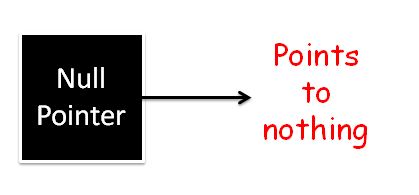In low level languages like C and C++, strings can be represented by arrays of characters.
This takes the appearance of char[] or char*, but with one small difference.
It is implied that all string character arrays end with a terminator '\0'.
The following expressions are nearly the same:
char* str = "Modified"; // The pointer is to the first element
char str[] = "Modified";
char str[9] = "Modified";
char str[] = {'M','o','d','i','f','i','e','d','\0'};
char str[9] = {'M','o','d','i','f','i','e','d','\0'};
So what if you want to change or initialize a string array's value.
There are a few options.
One would assume you have to pass it in to a method using char[] or char*.
void method(char* val){
// set the value
}
This is probably the most tricky because you are going to have to know the length of the string.
You can try using char** or char*& which reference the character array.
void method(char** val){
// set the value
}
Or this, which is only available in C++.
void method(char*& val){
// set the value
}
Another advantage of the last two is that you don't have to provide an initial value for char* val.
Let's see how we would write and run each of these:
#include <stdio.h>
#include <string.h>
// This will accomplish nothing
void set_char_pointer(char* val){
val = (char*)"Modified string";
}
// This will sprintf over the char*
void sprintf_char_pointer(char* val){
// can only be as long as previous value
sprintf(val, "Modified");
}
// In this case, val doesn't even have to be initialized
void char_pointer_pointer(char** val) {
*val = "Modified";
}
#ifdef __cplusplus
// This trick will work in c++, but not in c
void char_pointer_ref(char*& val) {
val = "Modified";
}
#endif
int main()
{
char * orig = "Original";
set_char_pointer(orig);
printf("set_char_pointer(char* val) => \"%s\"\n", orig);
// char* orig1 = "Original"; // produces an error in this case
char orig1[9] = "Original";
sprintf_char_pointer(orig1);
printf("sprintf_char_pointer(char* val) => \"%s\"\n", orig1);
char * orig2 = NULL; // Doesn't have to be initialized
char_pointer_pointer(&orig2);
printf("char_pointer_pointer(char** val) => \"%s\"\n", orig2);
#ifdef __cplusplus
char * orig3 = NULL; // Doesn't have to be initialized
char_pointer_ref(orig3);
printf("char_pointer_ref(char*& val) => \"%s\"\n", orig3);
#endif
return 0;
}
This outputs the following results:
set_char_pointer(char* val) => "Original"
sprintf_char_pointer(char* val) => "Modified"
char_pointer_pointer(char** val) => "Modified"
char_pointer_ref(char*& val) => "Modified"
For setting the value of a new string array, it seems like char_pointer_pointer(char** val) makes the most sense.
You don't have to allocate or initialize the string array and it is available in C and C++.
This seems like one of those times where setting a pointer to NULL doesn't cause any trouble.
Now go ahead and try this on your own.
